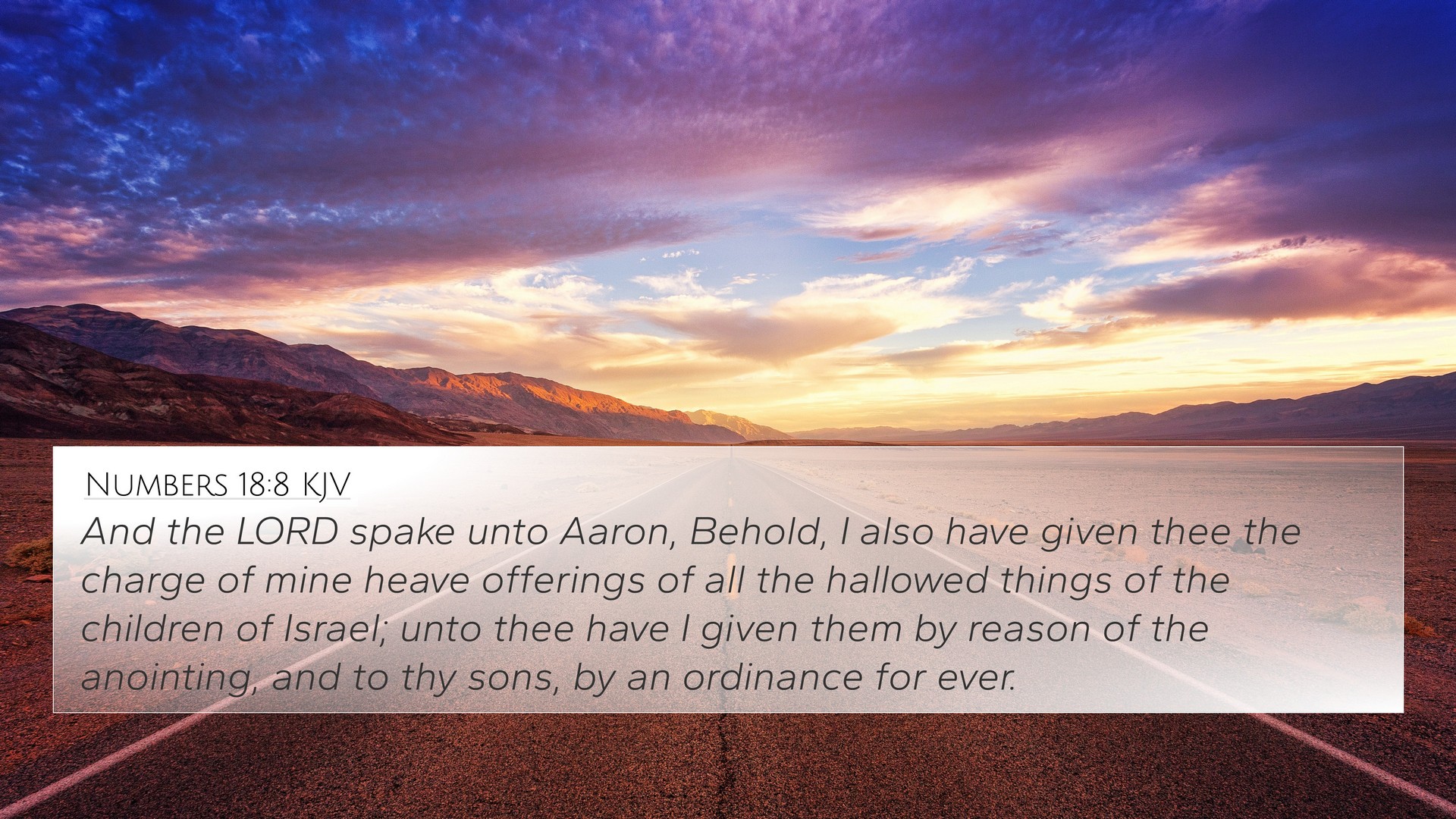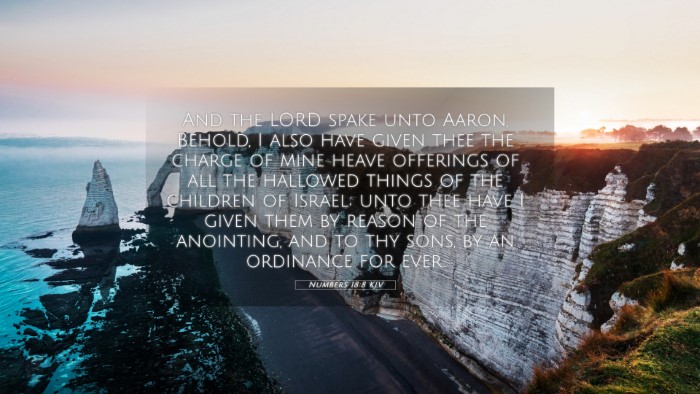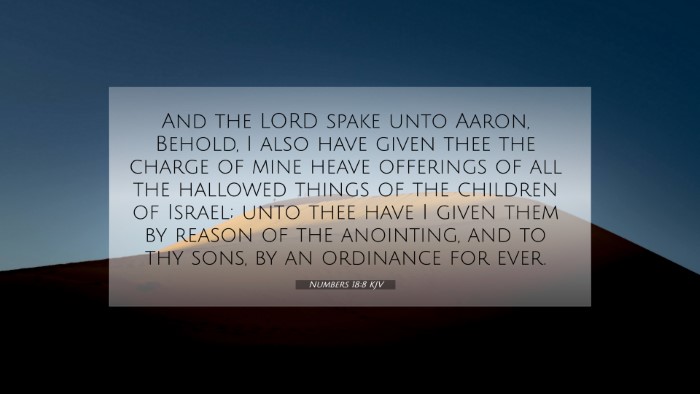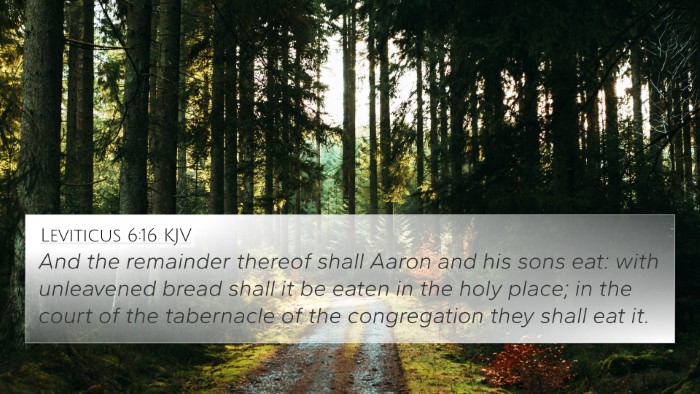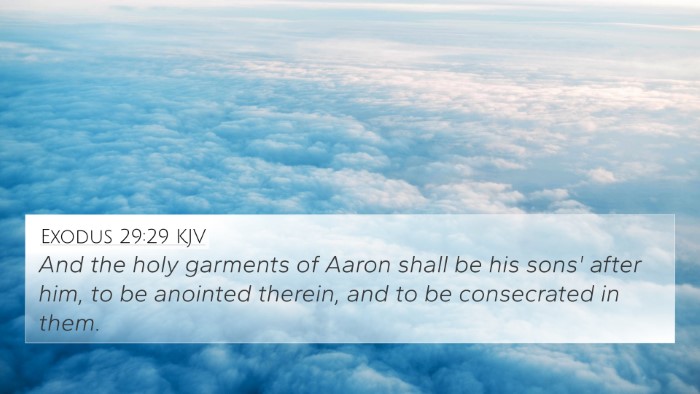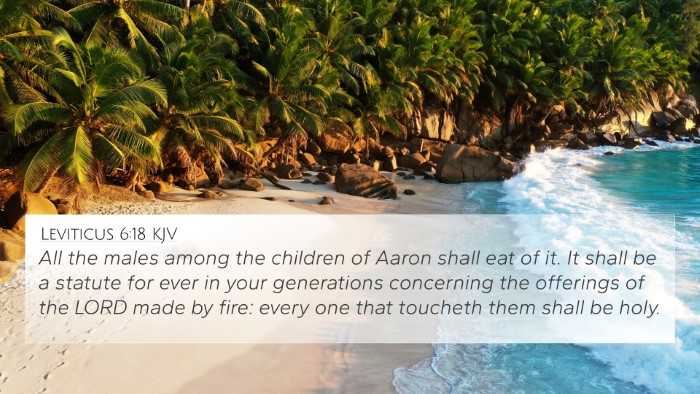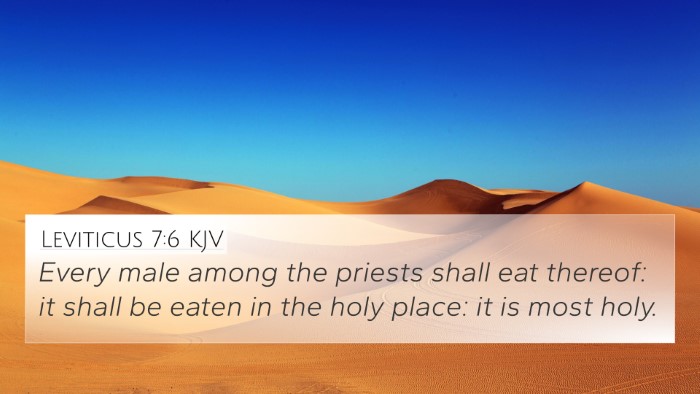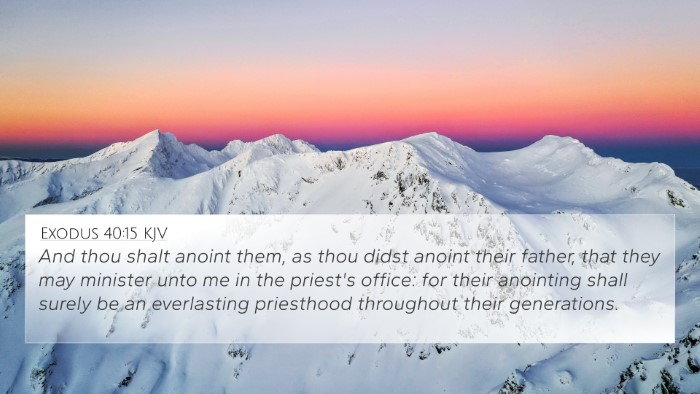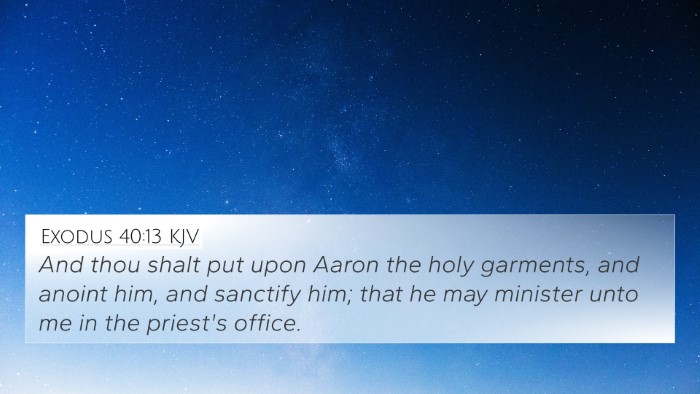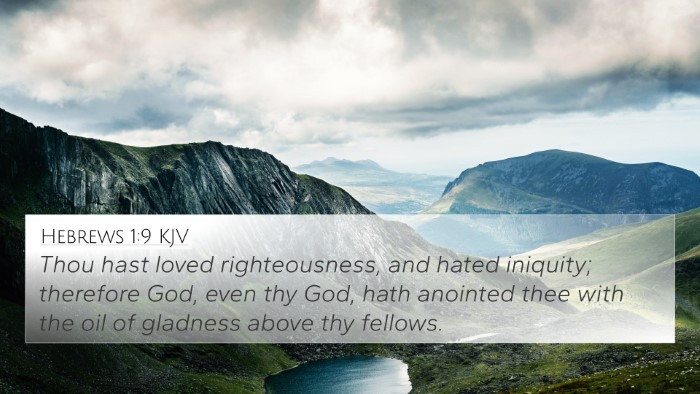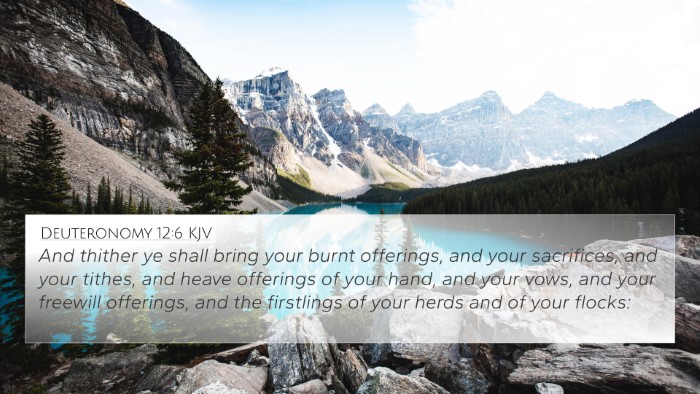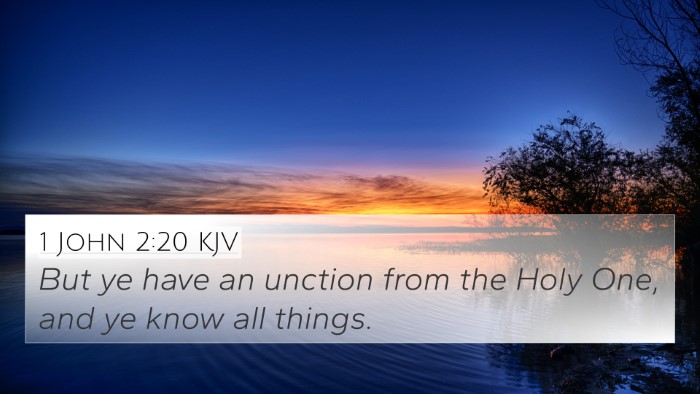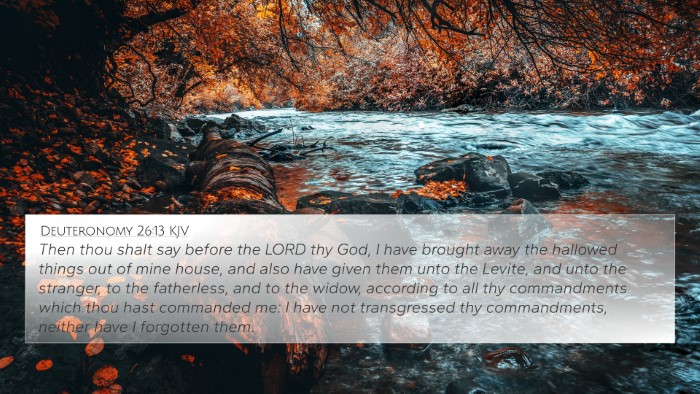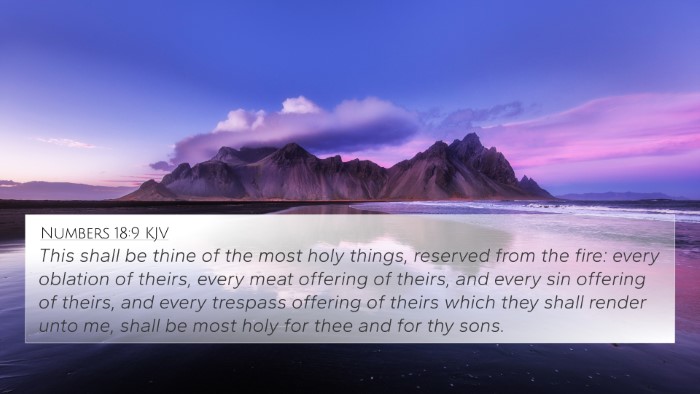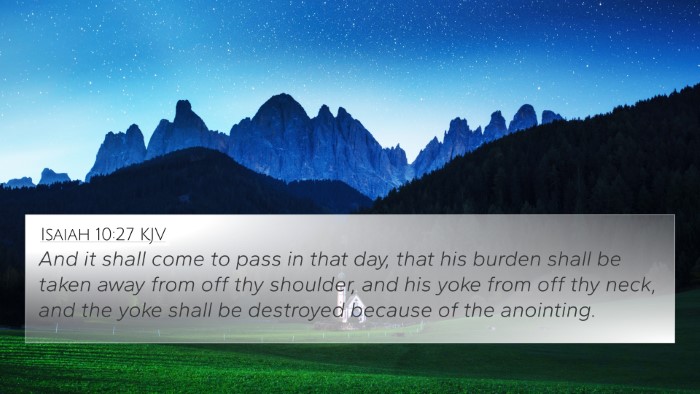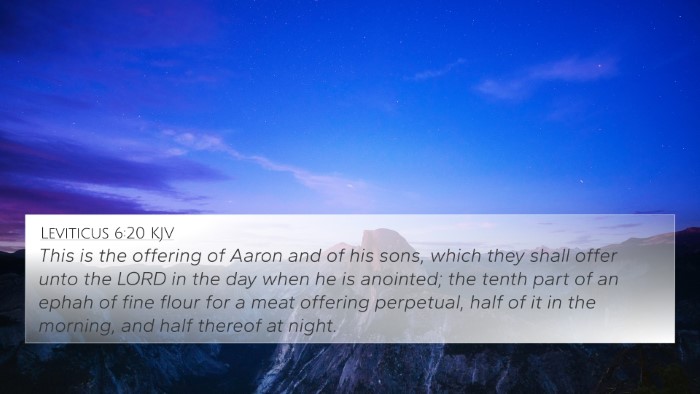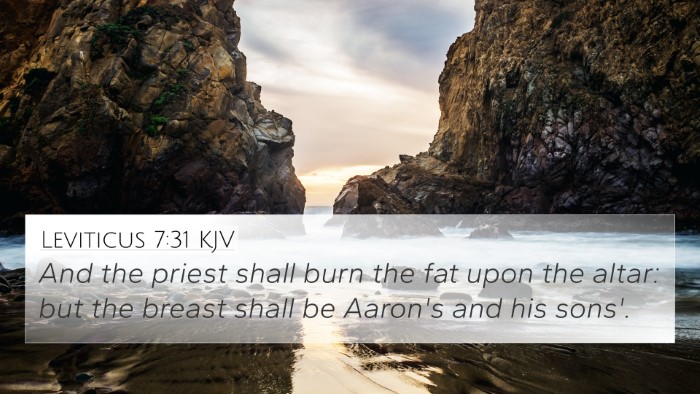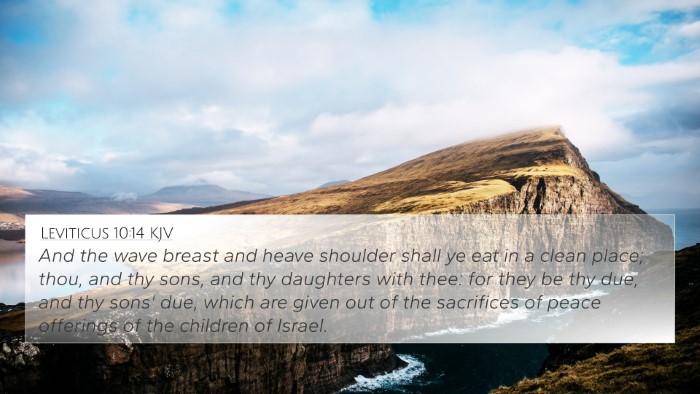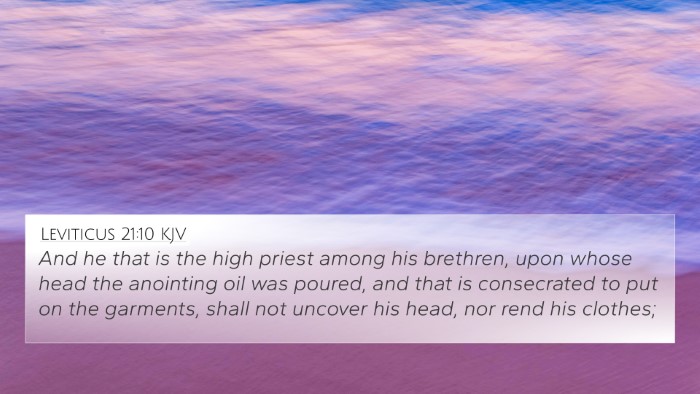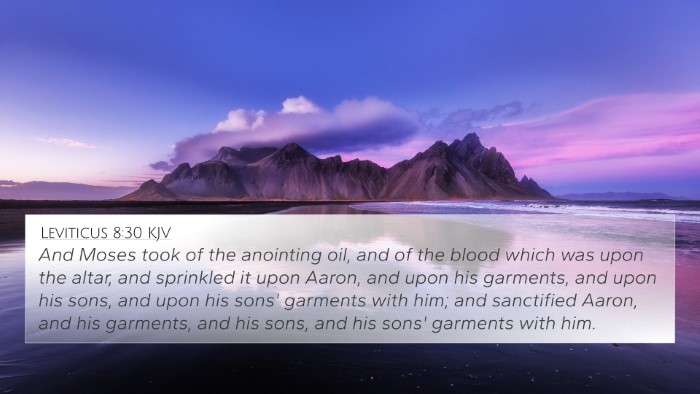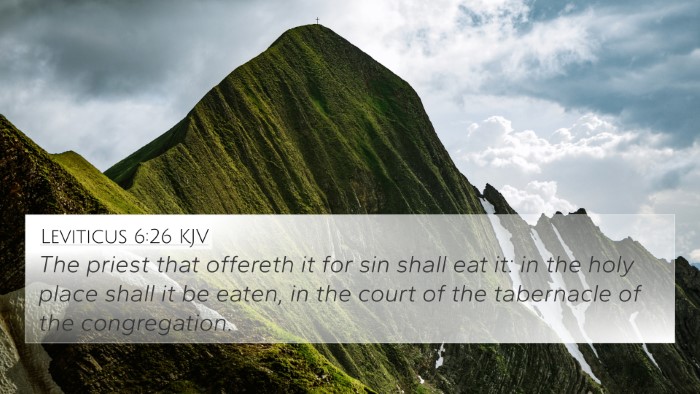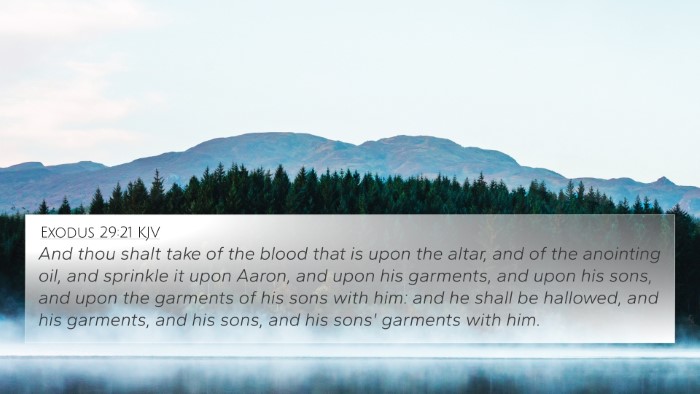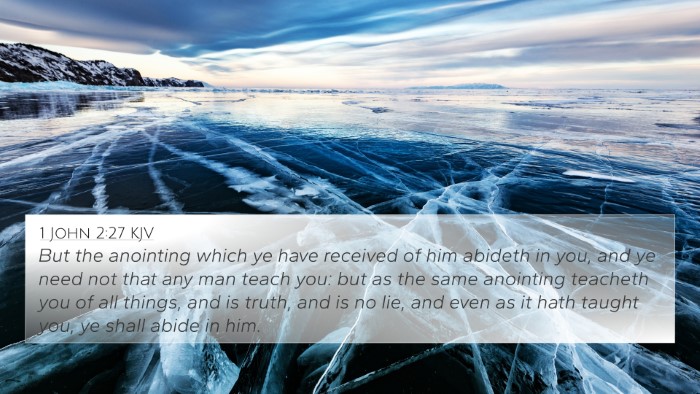Understanding Numbers 18:8
Numbers 18:8 reads: "And the Lord spake unto Aaron, Behold, I also have given thee the charge of mine heave offerings of all the hallowed things of the children of Israel; unto thee have I given them by reason of the anointing, and to thy sons, by an ordinance forever."
Summary of Biblical Context
This verse comes from a section of the Book of Numbers that outlines the responsibilities and privileges of the Levitical priesthood, specifically focusing on Aaron and his descendants. It highlights the divine allocation of the heave offerings, sacred gifts given by the people of Israel to support the priestly service.
Insights from Commentaries
Matthew Henry's Commentary
Matthew Henry emphasizes that this verse illustrates God's provision for the priests, signifying their role as mediators between God and His people. He notes that the heave offerings are not just entitlements but carry the weight of responsibility, as they are meant for holy purposes.
Albert Barnes' Notes
Albert Barnes expands on the concept of "heave offerings," explaining their significance within the sacrificial system of Israel. He highlights that the offerings represent a portion of the sacrifices that are elevated to God, indicating both appreciation and acknowledgment of God's sovereignty over the people.
Adam Clarke's Commentary
Adam Clarke discusses the historical context, clarifying how this allocation reflects the covenant of God with Israel. He interprets the significance of the "anointing," stating that it symbolizes God's choice and empowerment of the priests to fulfill their sacred duties.
Bible Verse Cross-References
- Exodus 28:1: "And take thou unto thee Aaron thy brother, and his sons with him, from among the children of Israel, that he may minister unto me in the priest's office."
- Leviticus 7:34: "For the wave breast and the heave shoulder have I taken of the children of Israel from off the sacrifices of their peace offerings, and have given them unto Aaron the priest and unto his sons by a statute forever."
- Numbers 5:9-10: "And all the heave offerings of the holy things, which the children of Israel offer unto the Lord, have I given thee, and thy sons and thy daughters with thee, by a statute forever."
- Deuteronomy 18:1-2: "The priests the Levites, and all the tribe of Levi, shall have no part nor inheritance with Israel; they shall eat the offerings of the Lord made by fire, and his inheritance."
- 1 Chronicles 23:13: "The sons of Amram; Aaron and Moses: and Aaron was separated, that he should sanctify the most holy things, he and his sons forever, to burn incense before the Lord, to minister unto him, and to bless in his name forever."
- Hebrews 5:4: "And no man taketh this honor unto himself, but he that is called of God, as was Aaron."
- Romans 12:1: "I beseech you therefore, brethren, by the mercies of God, that ye present your bodies a living sacrifice, holy, acceptable unto God, which is your reasonable service."
Thematic Connections
The verse emphasizes themes of divine calling, priesthood, and resource allocation for the service of God. It connects with other scriptures that discuss the roles and responsibilities of spiritual leadership within the community of believers:
- Service to God: Parallel to Romans 12:1, where believers are called to present their lives as living sacrifices.
- Divine Provision: Echoed in Philippians 4:19, "But my God shall supply all your need according to his riches in glory by Christ Jesus."
- Intercession: Related to Hebrews 7:25, which affirms Christ's role as the eternal high priest.
Cross-Referencing Biblical Texts
Understanding Numbers 18:8 involves recognizing the wider biblical narrative in which God designs a system that ensures His servants (the priests) are sustained by the community they serve. Through this cross-referencing and comparative analysis, readers can glean deeper spiritual insights into the nature of divine provision and service in the community of faith.
Conclusion
In conclusion, Numbers 18:8 serves as a foundational verse for understanding the role of the Levitical priesthood and God's intention for His servants. By examining this verse alongside related scriptures, one uncovers rich theological themes of sacrifice, dedication, and God's provision for those who serve Him.
Further Study Resources
For those interested in delving deeper into the concept of cross-referencing Bible scriptures and exploring thematic connections, numerous resources are available, such as:
- Bible concordances for exploring keyword connections.
- Bible reference tools that detail inter-Biblical dialogue.
- Guides on how to use Bible cross-references effectively.
